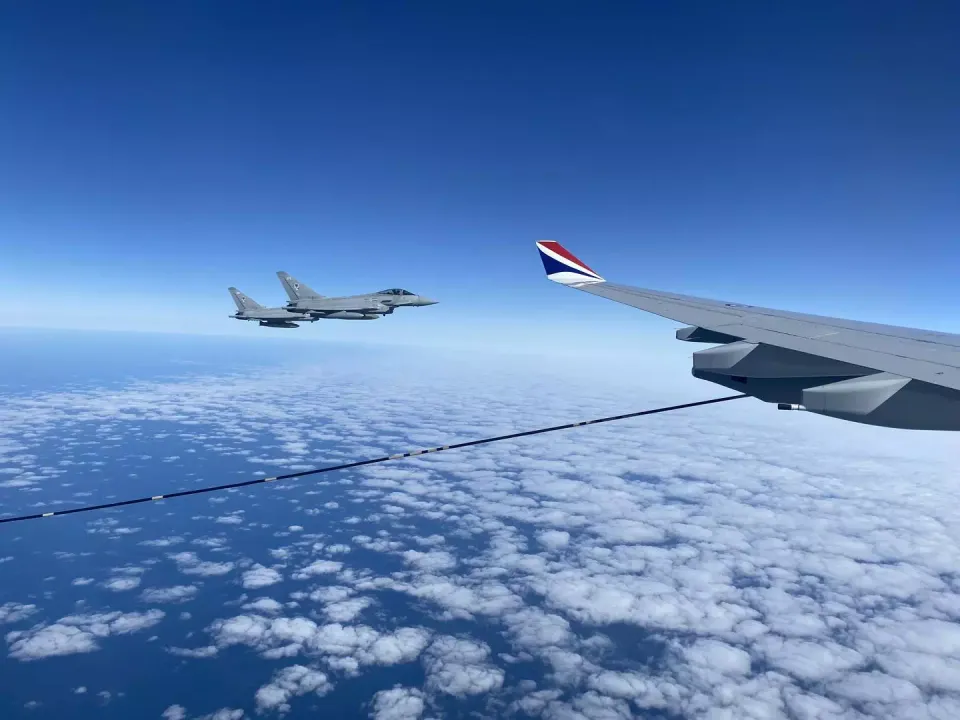UK’s Royal Air Force begins routine SAF flights

The UK’s Royal Air Force is using a blend of conventional and sustainable aviation fuel for routine operations for the first time in a move to cut emissions.
The Royal Air Force has added sustainable aviation fuel (SAF) supplied by World Fuel Services on its Typhoon and Poseidon submarine hunters, operating from its Lossiemouth base in Scotland.
Four million litres of the fuel were delivered earlier this year, with another five million litres due to be delivered in the next few months.
“The pioneering use of sustainable fuels on routine operations shows how we’re delivering on our first priority to keep Britain secure without compromise, while addressing our carbon footprint,” said Defence Minister Lord Vernon Coaker.
Sustainable aviation fuel for military use
Like the rest of the aviation sector, air forces around the world are betting on sustainable aviation fuel to decarbonise their operations, leading defence aircraft manufacturers including Airbus and Boeing to test and provide guidance on SAF use.
Read also: Airbus and Boeing ramp up decarbonisation efforts
Last year, the Royal Air Force re-fuelled four Eurofighter Typhoon aircraft – made by Airbus – with a 43% SAF blend as part of a series of tests with the new jet fuel.
“All our aircraft have been designed to operate with normal jet fuels. SAF has different properties but from our testing we are able to demonstrate how capable our aircraft are for flying with a new type of fuel,” said Airbus’ Filton-based engineer Loraine McIlree at the time.
Earlier this year, Boeing also issued guidance on the use of SAF in its military aircraft, saying there was “no technical objection” to using a blend of up to 50% SAF – the current limit established by the Ministry of Defence’s aviation fuel standards.
Royal Air Force net zero ambitions
The Royal Air Force has a target of achieving net zero operations by 2040, and believes using SAF can help it cut aircraft carbon emissions by up to 70%.
Since the update of aviation fuel standards, the RAF has been conducting a number of different trials with alternative fuels. In November 2021, it flew a microlight aircraft powered by synthetic fuel created from air and water, and a year later, an RAF Voyager successfully trialled the use of 100% sustainable aviation fuel, on 90-minute flight.
RAF Lossiemouth’s Station Commander Group Captain Sarah Brewin explained: “The routine use of sustainable aviation fuel represents an important milestone in the RAF’s journey towards helping mitigate against climate change. By integrating sustainable practices into our operations, we are not only enhancing our ability to protect the nation and deliver excellence on operations, but also contributing to a more sustainable future for generations to come.”







Member discussion